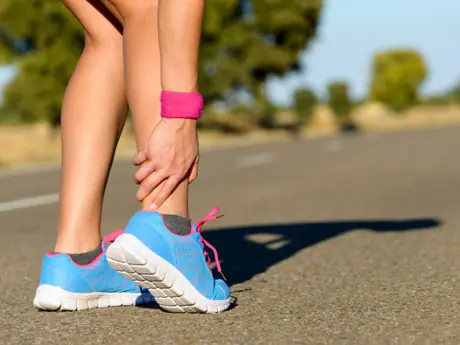A recent study in Medicine and Science in Sport and Exercise has shown that runners with Achilles tendinopathy have a timing delay in their gluteus medius and glute max muscles when compared to healthy controls.

This means that those muscles don’t contract on demand to control the pelvis as the foot hits the ground.
The researchers suggest that it might be worth considering the neuromuscular function of these muscles in particular when rehabilitating runners with Achilles tendon issues.
Other studies have shown altered neuromuscular function in glute med and max in subjects with knee pain.
There will be a significant portion of you reading this that continue to suffer from either ankle problems or knee pain despite doing exercises for these particular muscles.
Why is this?
There are two possible reasons:
1) The exercises you are doing are ineffectual at targeting those muscles.
2) Your issue is not being caused by weakness in either of those muscles.
Let’s focus on the second reason here because it’s the most likely and addressing it will give you the biggest gains in your rehab.
In my experience the injured limb of every runner will contain a bunch of muscles that are no longer contracting particularly well. These include glute med and glute max.
If you bias your research towards particular muscles, you will find them weak in every injured runner you test.
Does that mean they are the only muscles not contracting well?
Absolutely not.
Pain and inflammation cause disturbances in the communication between muscles and the central nervous system. This occurs both at the site of injury and further afield.
Directing your efforts at two particular muscles at the expense of others reduces your chance of success.
If you find yourself in this position book a call to find out how we can help.